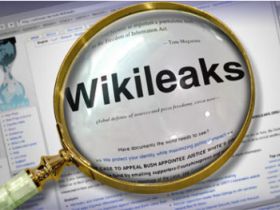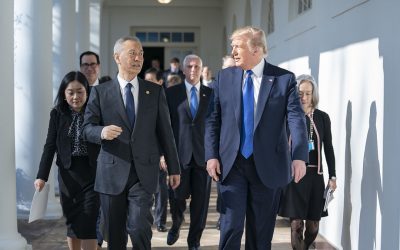WikiLeaks: US should get even with EU for GM-resistance

“Country team Paris recommends that we calibrate a target retaliation list that causes some pain across the EU” [Emphasis added] – Recommendation by US Ambassador to France, Craig Stapleton.
WikiLeaked cables released over the weekend revealed more about the US’ role as a global bully, trying to thrust unpopular genetically modified (GM) crops onto cautious governments and their citizens.
In a 2007 cable from Craig Stapleton, then US Ambassador to France, he encouraged the US government to "reinforce our negotiating position with the EU on agricultural biotechnology by publishing a retaliation list." A list, he added, that "causes some pain across the EU since this is a collective responsibility."
“EU moving backwards”
The stated reason for their attack was that "Europe is moving backwards not forwards" on GMOs, with "France playing a leading role, along with Austria, Italy and even the [EU] Commission."
The Ambassador was concerned that France and others would put a ban on the cultivation of Monsanto’s GM corn seeds called Mon 810, engineered with a gene that produces a toxic insect-killing pesticide in every cell.
Mon 810 is the first GM crop approved for planting EU-wide and has been a test case for biotech expansionism into the continent.
Common interest
According to the cable, the Ambassador also rejected the France’s new "Grenelle" environment process, which looks beyond just the science of new technologies to also take into account "common interest."
Evidently a government that looks out for common interest is just too much for Ambassador Stapleton. He wrote, "Combined with the precautionary principle, this is a precedent with implications far beyond MON-810 BT corn cultivation."
Free pass
He was also upset about France’s draft biotech law that "would make farmers and seed companies legally liable for pollen drift." This concept that the "polluter pays" is a foundational principle of US law — except for GMOs.
Here Stapleton also wants France to give a free pass for Monsanto and the other GM seed companies.
The French government and EU Commission tried to placate the US suggesting that the rejections of Mon 810 "are only cultivation rather than import bans."
But Stapleton says, "We see the cultivation ban as a first step, at least by anti-GMO advocates, who will move next to ban or further restrict imports."
Consumer concerns
The ambassador fails to point out that a de facto ban of GM ingredients in food has been in place since 1999, not by the government, but by the food industry.
They have kept GMOs out of their products due to widespread consumer concern about the health effects. Since foods containing GMOs must be labelled in Europe, companies always source non-GMO food to avoid that label.
Animal feed excluded
The exception is animal feed. EU law does not require meat or other animal products to label whether GMOs were fed to the animals.
This loophole has allowed lots of US- and Brazil-grown GMO animal feed to be shipped to Europe.
According to the cable, "The [French] environment minister’s top aide told us that people have a right not to buy meat raised on biotech feed." Offering consumers a choice on GMOs is not on the US government agenda.
Ambassador Stapleton had been a co-owner with George W. Bush of the Texas Rangers baseball team. Once Bush was in office, Stapleton became US Ambassador to the Czech Republic, and then in France. His pro-GMO stance was in-line with the Bush administration, which used a WTO lawsuit to try to force Europe to accept GMOs.
Retaliation
Stapleton’s tone in the letter was insistent. "We should not be prepared to cede on cultivation because of our considerable planting seed business in Europe."
He said, "Moving to retaliation will make clear that the current path has real costs to EU interests and could help strengthen European pro-biotech voices.
“In fact, the pro-biotech side in France – including within the farm union – have told us retaliation is the only way to begin to turn this issue in France."
This blog, written by Jeffrey Smith, Institute for Responsible Technology, appeared on Huffington Post on December 20, 2010











